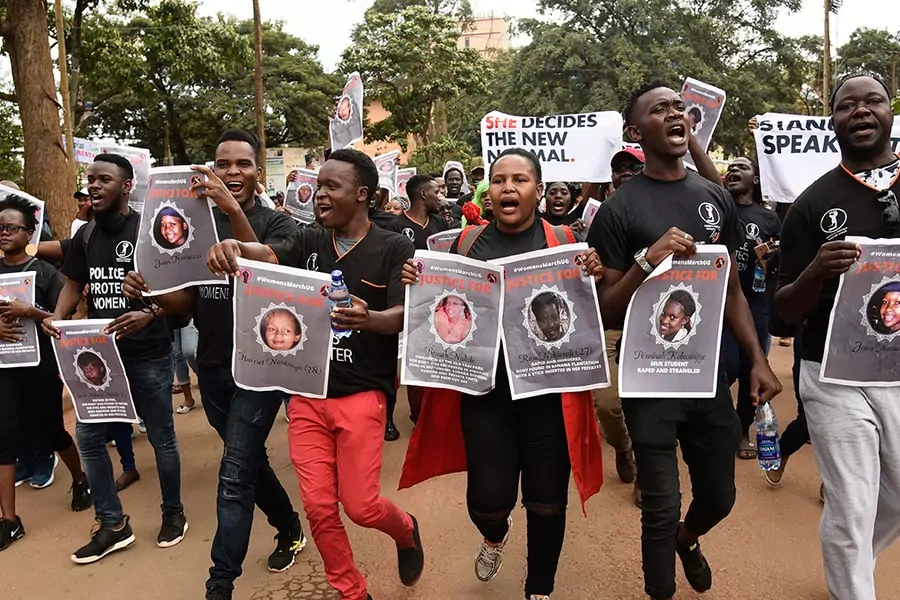Waves of Crime Threaten Uganda’s Reputation for Stability

Lately, the news from Uganda has been troubling. Rising crime rates have come to dominate the national narrative, as murders, robberies, and kidnappings have raised alarm among average citizens and elites alike. In the middle of this general insecurity, a number of apparent, targeted assassinations of prominent figures in politics and the security services are fodder for the rumors about motives, plots, and intrigues that swirl around social media. The realities of the violence, commentaries, and theories have all prompted concerns about an unraveling of the country’s relative stability in the midst of a troubled region.
On June 20, President Yoweri Museveni, who has led Uganda since 1986, delivered an address to Parliament billed as a strategic plan to bring an end to criminality and violence. His ten proposals were heavy on technological solutions and increased state surveillance, but it remains to be seen how practical and effective they will be. Interestingly, President Museveni chose to deliver a lengthy, historical prologue to his contemporary policy prescriptions. Presenting this juxtaposition, he paternalistically told the assembled members of Parliament that, “you know about everybody else but know nothing about yourselves” as he asserted that his government had delivered peace to Uganda for the first time in five-hundred years. The tone of the address served as a captivating snapshot of the political climate in Uganda.
More on:
Museveni has maintained his grip on power for thirty-two years by pitting potential successors against each other, ensuring that security services are loyal to him above all else, and reminding the people of his country that he delivered them from a chaotic and brutally violent past. These tactics point to the all-but-explicit message that he alone can prevent a return to bedlam. However, these very methods have played a role in enabling the current crisis, as powerful factions jostle for the sources of patronage that sustain them. These latest waves of crime undercut Museveni’s claim that he is capable of providing the stabilizing force the country requires. With roughly seventy percent of Ugandans under the age of twenty-five, the vast youthful population may not be able to imagine another leader of their country just yet, but they may begin to question whether the septuagenarian in charge is really a bulwark against disorder when disorder continues to rise all around them.
More on:
 Online Store
Online Store